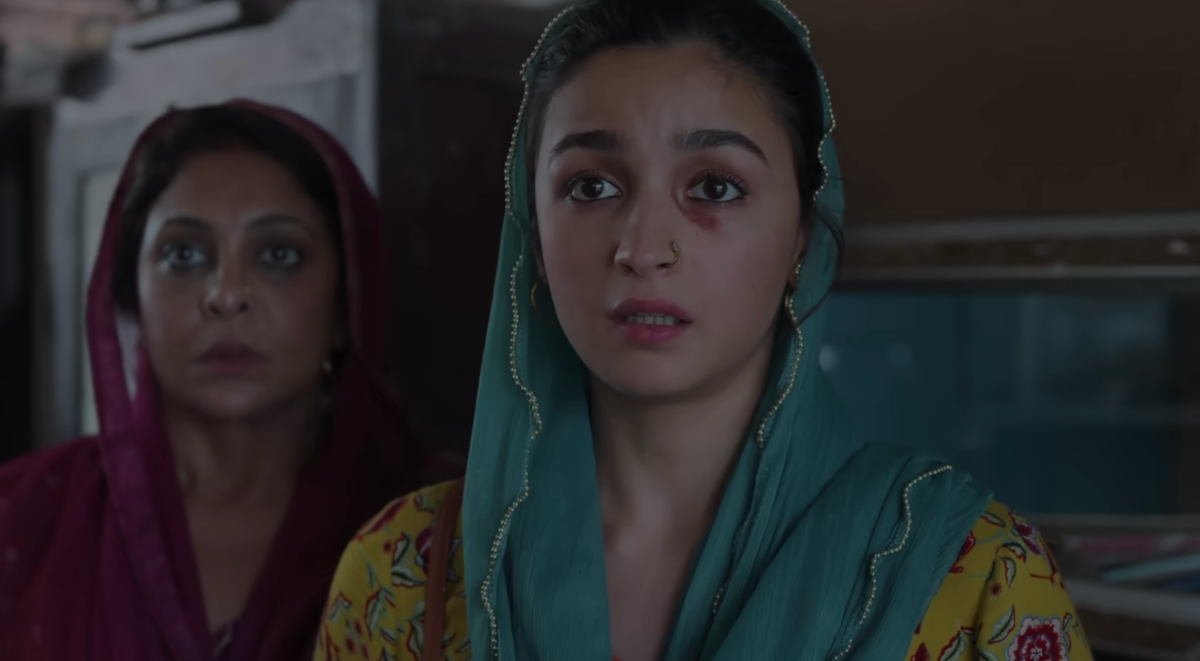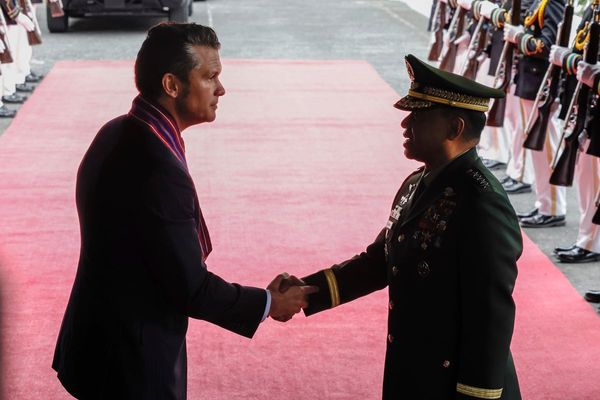
This story contains some spoilers for Netflix’s Darlings.
Alia Bhatt’s new Bollywood film Darlings has sparked a debate on domestic violence in India.
The film stars Bhatt as the protagonist Badru alongside Vijay Varma as Hamza, Shefali Shah as Bhatt’s mother Shamsu, and Roshan Mathew as Zulfi. It revolves around Badru, who hopes her volatile husband will reform if he stops drinking.
However, when his rage goes too far, she and her mother boldly, albeit clumsily, seek revenge.
Darlings was released on Netflix on Friday (5 August). The film directed by Jasmeet K Reen and written by Reen and Perveez Sheikh arrived on the streaming service at a very critical moment in India.
Earlier this year, a photographer named Sania Khan was found dead in her apartment in a case that was ruled as a murder-suicide perpetrated by her husband.
Another Indian, Mandeep Kaur, was found dead in her apartment in the US on the very day Darlings screened at a Manhattan theatre in New York City. The case is now being investigated as a homicide.
Both these cases had already sparked conversations about domestic violence in South Asian communities. With Darlings’ release, social media and the internet is now filled with split opinions about the issue.
When it comes to critics, Hindustan Times’ Monika Rawal Kukreja termed Darlings a thoughtful approach to domestic violence despite its flaws.
“In parts, the story does bother you when domestic violence is used as a ploy to trigger laughs – a woman sticking by her husband despite being abused, a man showing no sign of regret or for his actions, silent spectators shown as caricatures,” Kukreja wrote.
The Hindu’s Anuj Kumar also gave the film a positive review, writing: “Dismantling the crutches that help patriarchy saunter into living rooms, Darlings is a quirky social thriller that eventually almost reduces to a well-made public service film on domestic violence.”
Avinash Lohana of Pinkvilla added: “It may attract a plethora of opinions on the route that the filmmaker has chosen to make her point, but hopefully, it will at least get people discussing the subject a lot more.”
But not everyone who watched the film is happy with the storyline.
Many Twitter users have been using the hashtag #BoycottAliaBhatt as they believe that the new film supports domestic violence against men.
Bhatt, who also produced the film, told IndieWire that words such as “disturbing, shattering, unfortunate, necessary” came to a person’s mind when they read stories like Darlings.
“Millions of [domestic abuses] happen even now in our country, and it just makes me really sad because it makes me feel like there’s an attitude that’s set in that this is something that happens in every marriage, ‘Oh, it happens with everybody’,” she said.
“But then it gets to [a] really, really disturbing point and why let it get to that? There’s also certain fear and taboo or stigma attached to people being alone, or people not being in a marriage or not being in relationship or not being divorced. That should not happen, not anymore.”
According to a longitudinal research study by BMC Women’s Health analysing trends and lessons on domestic violence faced by women in India, between 2001 and 2018, the majority of domestic violence cases were filed under “cruelty by husband or his relatives”, with the reported rate of this crime increasing by 53 per cent over 18 years.
The study also highlighted that the rate of cases of cruelty by husbands or relatives was 28.3 per 1,00,000 women in 2018, which is an increase of 53 per cent from 2001.
“It’s too much pressure; it’s a societal structure that has been created,” Bhatt said. “If you’re in a happy union with somebody then of course celebrate it, have fun, live a great life – but if you’re not, then you’d rather be alone than in such a troubled dynamic.
“We need to keep having that conversation. Cinema is one of the best mediums to [state] a point and reach out to people, and touch a chord with them emotionally and mentally.”
If you or someone you know is experiencing domestic abuse, you can call the 24-hour National Domestic Abuse Helpline, run by Refuge, on 0808 2000 247, or visit their website here.







